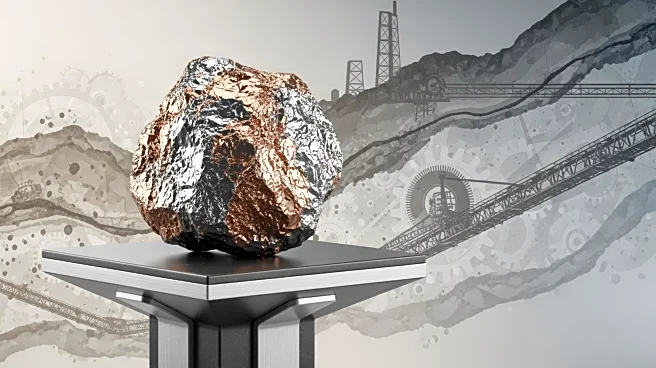What's Happening?
Indonesia's energy ministry has endorsed Amman Mineral Internasional to export 480,000 dry metric tons of copper concentrate. This recommendation is valid for six months from October 31, allowing Amman Mineral to seek
an export permit from the trade ministry. Since mid-2023, Indonesia has banned exports of copper concentrates to encourage domestic processing. Amman Mineral was initially allowed to export until December 2024, by which time it was expected to commission a smelter. However, the smelter faced operational issues, temporarily halting operations in July and August due to damage. Repairs are expected to be completed in the first half of 2026.
Why It's Important?
The endorsement from Indonesia's energy ministry is crucial for Amman Mineral as it navigates the country's export restrictions. The ability to export copper concentrate is vital for preventing storage facilities from exceeding capacity and ensuring continued mining operations. This development is significant for the global copper market, as Indonesia's policies influence supply dynamics. The situation highlights the challenges faced by mining companies in adapting to regulatory changes and underscores the importance of domestic processing capabilities in resource-rich countries.
What's Next?
Amman Mineral must now apply for an export permit from the trade ministry to proceed with shipments. The company is working on repairing its smelter, with partial operations currently underway. The completion of repairs is anticipated in the first half of 2026, which will enable full processing capabilities. Stakeholders in the copper industry are likely to monitor these developments closely, as they impact global supply chains and pricing.
Beyond the Headlines
The situation with Amman Mineral reflects broader trends in resource nationalism, where countries seek to maximize the value of their natural resources through domestic processing. This approach can lead to tensions between government policies and industry needs, affecting global trade dynamics. The emphasis on domestic processing also raises questions about the environmental and economic impacts of such policies.









